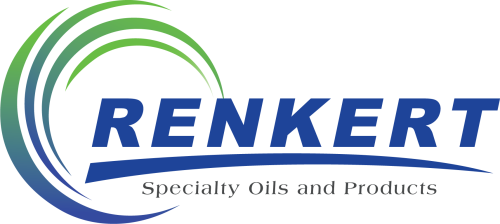As the winds of change blow for lubricant manufacturers, SQF-certified suppliers can provide support in keeping up with regulatory changes.
SQF (Safe Quality Food) may seem by its name to apply only to food manufacturing. But the program applies broadly, improving safety, efficiency, and quality control in all product handling.
Its guidance can help address looming regulatory changes, including:
- hazardous material documentation & communications,
- handling of restricted toxic chemicals, and
- the possibility of new bans on critical compounds.
While adjustments to operations will be necessary, working with SQF-certified suppliers can simplify a significant piece of the puzzle: supply chain management.
3 Changes to Watch & How SQF-Certified Suppliers Can Help
The latest issue of ILMA’s (the Independent Lubricant Manufacturer’s Association) industry magazine, Compoundings, tackles known and likely regulatory changes coming in 2023. Pressure to update rules is coming from both within the U.S. and from international neighbors.
1. Hazard Communication Standard Update
OSHA (the Occupational Safety and Health Administration) created its Hazard Communication Standard, or HCS, in 1983. It governs the contents of safety data sheets, including product toxicity information.
Canada’s health ministry, Health Canada, is updating its version of the HCS. Industry leaders anticipate this will influence OSHA to do the same, instituting new requirements for “industrial hygienists” to maintain toxicity reports and databases.
How SQF Applies
SQF-certified suppliers must follow strict guidelines for operations manuals, documentation, and HACCP (Hazardous Analysis and Critical Control Points) policy. These standards already meet or exceed current OSHA standards for non-consumable product communications.
Up-to-date safety data sheets are a basic requirement of SQF thus assure compliance. Annual audits by SQF provide that security and reduce customers’ need to expend time checking.
2. Possible Listing of PFAs on Toxic Release Inventory
Federal and state governments are moving closer to listing certain PFA compounds (per- and poly-fluoroalkyl substances) under the Toxic Substances Control Act. Lubricant makers may have trace amounts of these compounds in their products.
This means that the EPA (Environmental Protection Agency) could make it public knowledge that PFA-containing product inventories are now considered toxic. Even sites protected by fire-suppression systems that use a PFA-containing foam agent could be listed.
How SQF Applies
One possible outcome is that the presence of PFAs may be restricted to select product lines rather than a full ban, as has been the case for several industrial chemicals in the EU.
The SQF system provides a framework for implementing dedicated lines to virtually eliminate the risk of cross-contamination when hazardous materials may otherwise be present. This implemented strategy will be useful when restructuring operations to isolate PFAs and avoid exposure.
3. EPA Scrutiny of Metalworking Fluids
Another chemical may be at greater risk of a pending EPA ban. MCCPs (medium-chain chlorinated paraffins), a key raw material in metalworking fluids, are raising concerns on both sides of the Atlantic.
ECHA (the European Chemicals Agency), considers MCCPs to be of “very high concern” due to evidence that they’re both toxic and bioaccumulative (living organisms absorb them faster than they can lose or eliminate them). The EPA may also institute further restrictions.
How SQF Applies
In the case of a ban, an SQF-certified supplier can not only help source an alternative but implement ready-made change procedures.
For metalworking and other applications, lubricant makers may find a suitable alternative in readily biodegradable isoparaffins such as Shell GTL. As an SQF-certified supplier, Renkert Oil can efficiently establish this new supply line with built-in quality control measures.
Renkert Oil: An SQF-Certified Specialty Oil Supplier
As you can see, our SQF certification not only offers benefits to our customers in the food manufacturing industry but lubricant makers as well.
SQF is basically an ISO 9001 quality management system (QMS) with many added security requirements on top of the highly prized ISO 9001 approach.
This rigorous system is about far more than “safe, quality food.” It gives every Renkert Oil customer an edge with a cost-effective, quality-controlled oil supply chain.
Contact us today to learn more about how Renkert Oil can support lubricant makers (including our fellow ILMA members) and all oil-dependent industries through regulatory changes.

